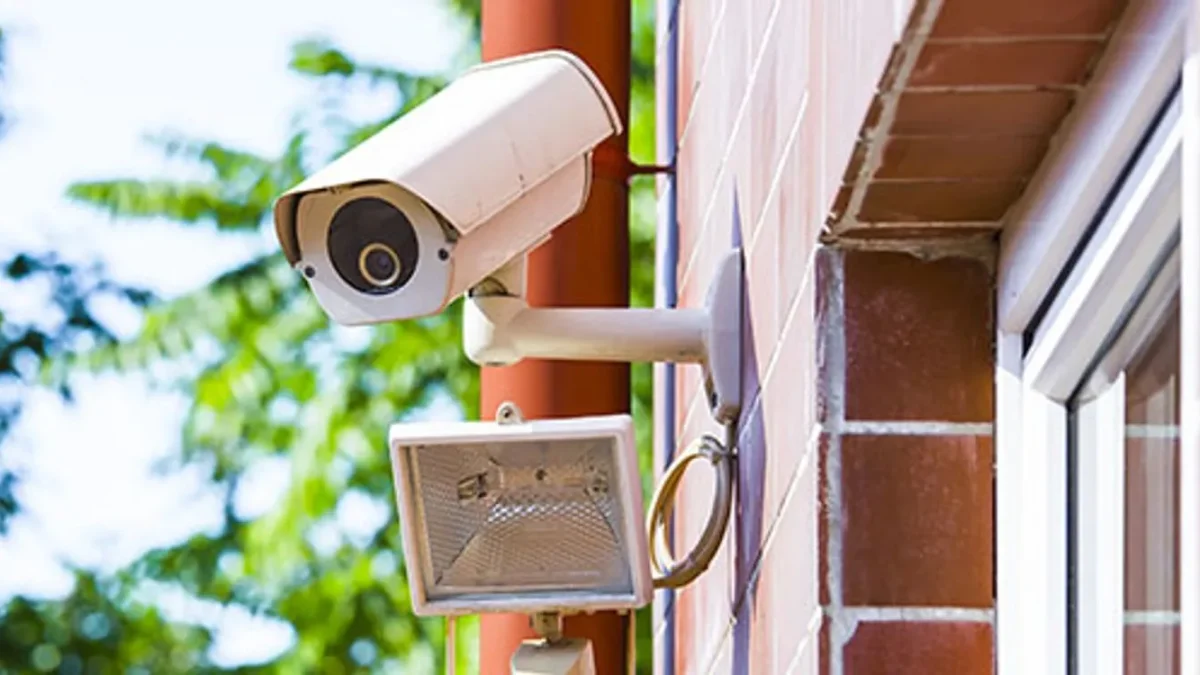Many homeowners and enterprise holders widely utilize CCTV (Closed-Circuit Television) techniques for management and safety goals in different stages, including their headquarters, houses, and general sites. While numerous clients understand CCTV cameras are mostly for capturing videotape footage, innumerable individuals wonder if CCTV can record sound. Do security cameras have audio recording?
The brief response is yes; most factories develop typical CCTV audio recording in addition to videotape. These cameras feature built-in microphones or endorse outward audio infusion via extra instruments. Nevertheless, it’s essential to state that not all CCTV cameras include audio recording abilities, and it relies on the precise sample and design. When selecting a CCTV scheme, it’s crucial to choose cameras explicitly mentioning audio capabilities if audio recording is needed.
This report will examine the qualifications of CCTV audio recording, the lawful concerns covering audio supervision, and how to control audio stages on safety cameras.
Table of Contents
ToggleHow do you utilize audio CCTV in other belongings?
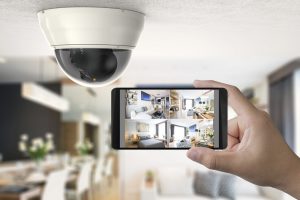
Before reaching the answer that CCTV records audio, it is helpful to understand that the factory supplies security cameras with CCTV audio recording abilities, which can be a valuable complement to businesses, providing an extra coating of security.
Audio management can assist in grasping essential details, such as discussions or voices appropriate to studies or proof groups. Nevertheless, it’s necessary to understand and comply with your jurisdiction’s legal requirements and regulations regarding CCTV audio recording.
Operating audio CCTV in your belongings can supply a covered layer of protection and management. Here are some methods by which you can virtually use audio CCTV on your belongings.
Deterrence
The existence of audio management can work as a barrier to possible intruders or unauthorized people. Understanding that a camera captures their actions visually and audibly can discourage criminal activity and promote a safer environment.
Deterrence is a critical element of safety procedures, and operating audio CCTV (Closed-Circuit Television) can seriously improve deterrence in different belongings. Audio management, mixed with videotape monitoring, supports the efficacy of CCTV methods by supplying an extra safety coating.
In residential belongings, the CCTV audio recording feature prevents possible intruders and trespassers by telling them that you may document and scan their efforts. Audio management can deter burglars, vandals, and other offenders from illegally accessing a property.
Using audio CCTV in commercial properties can help prevent theft, vandalism, and employee misconduct. The knowledge that their conversations and activities are being recorded can discourage individuals from engaging in illegal activities, making the property a less attractive target. The ability to capture visual and audio evidence of any wrongdoing can serve as a powerful deterrent.
Employees and visitors are more likely to follow the rules and regulations when they are aware that they are being monitored, thus reducing the likelihood of misconduct or theft. Additionally, CCTV audio recording can be advantageous in resolving disputes or investigations by providing valuable audio recordings of incidents or conversations.
Audio CCTV can significantly maintain law and order in public areas like parks, transportation hubs, or city centres. The presence of visible audio surveillance systems can discourage antisocial behaviour, such as public disturbances, harassment, or vandalism. If you own a car, CCTV for car can be considerably effective in increasing its safety acting as a deterrent.
Individuals may think twice before engaging in disruptive or illegal activities if they know their actions are being monitored and recorded, resulting in a safer environment for the overall public.
Enhanced monitoring
It’s important to note that CCTV audio recording can provide crucial details that may not be visible in video footage alone. For instance, it can capture conversations, verbal threats, or suspicious sounds critical in evidence collection or investigations. This additional information can greatly assist law enforcement or security personnel in identifying and resolving incidents more effectively. That is why urban traffic management using CCTV can act as a deterrent to ensure a safe and secure atmosphere for the citizens.
Verifying alarms or alerts
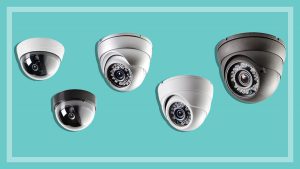
Combining audio CCTV with home alarm systems allows for remote verification of alerts or alarms. In case of an alarm, you can access the live audio feed instantly to evaluate the situation and act accordingly.
This functionality minimizes false alarms and facilitates swift response to actual security risks.
Communication
CCTV camera systems equipped with audio capabilities can enable bidirectional communication between security personnel or property owners and people in the monitored area. This feature is highly beneficial for conveying instructions and warnings or extending aid during emergencies.
Remote monitoring
Using CCTV audio recording capabilities, you can remotely check your property and listen to live or recorded audio feeds from anywhere with internet access. This feature lets you stay connected and track what’s happening even if you’re not physically present at the location. You can also watch Hikvision CCTV on the phone.
How to tell if a camera is recording audio
It’s crucial to consider audio surveillance’s legal and ethical implications and ensure that such technology complies with local laws and regulations. To maintain transparency and respect privacy rights, you should notify individuals who enter your property that a CCTV audio recording is in operation. Consulting with experts in the field and following best practices will help you leverage the benefits of audio CCTV while upholding legal and ethical standards.
Audio surveillance laws by state in the UK
Regarding whether CCTV records audio, it’s worth noting that in the UK, CCTV audio recording is subject to the Data Protection Act 2018 and the General Data Protection Regulation (GDPR). These regulations treat audio recording as personal data processing, which must adhere to data protection principles.
Generally, recording conversations or private discussions without the knowledge and consent of those involved is prohibited under UK regulations. Therefore, if you intend to use CCTV audio recording, you must follow specific rules and regulations outlined in the Data Protection Act 2018 and the General Data Protection Regulation (GDPR).
The primary purpose of these regulations is to safeguard individuals’ privacy and personal data. To ensure compliance, here are some critical rules to consider when using CCTV audio recording in the UK:
Consent
It would help if you informed all parties that an audio recording is taking place and that they must provide explicit consent before the camera can capture their conversations.
Legitimate Purpose
CCTV audio recording should have a valid reason, such as enhancing security, preventing crime, or collecting evidence. You cannot use this feature to monitor indiscriminately or intrusively beyond the necessary objectives.
Transparent Signage
Visible signage indicating that a CCTV audio recording is in progress is essential. The signs should provide information about the purpose of audio surveillance and be easily visible. Individuals should be informed that the camera is recording their conversations, allowing them to make informed decisions about entering the premises.
Data Retention
Recorded audio should be retained only for the time necessary for the purpose for which it was collected. Establishing a retention policy and ensuring that audio recordings are securely stored and protected against unauthorized access is crucial.
Data Subject Rights
Individuals have specific rights concerning their data, including CCTV audio recording. They can request access to their recorded conversations, request corrections if inaccuracies are found, and, in some cases, request the deletion of their data. It’s essential to have processes to handle such requests in compliance with data protection laws.
Data Security
Protecting audio recordings from unauthorized access, loss, or damage requires implementing adequate measures. This includes using encryption, secure storage systems, and restricting access to authorized personnel only.
Consultation
If you plan to use CCTV audio recording in a public space where individuals reasonably expect privacy, conferring with a lawful expert or pursuing advice from the Information Commissioner’s Office (ICO) is advisable to guarantee adherence to detailed rules and conditions.
Adhering to these rules ensures that audio recording with CCTV systems in the UK aligns with legal obligations, respects privacy rights, and promotes responsible data handling practices.
Is it legal to record sound via CCTV cameras?
The legality of audio recording with security cameras differs depending on the UK’s jurisdiction and laws. Can security cameras record audio? Yes, CCTV can record audio, but researching and understanding the laws and regulations governing audio surveillance in the UK is crucial before deploying CCTV audio recording capabilities. Audio recording may require the consent of all parties involved in some countries or states, while in others, only the consent of one party is sufficient.
Even in public spaces or areas without reasonable expectation of privacy, it’s essential to exercise caution and ensure that the owner performs audio recording for legitimate purposes and within the boundaries of the law. When considering using CCTV audio recording, it’s advisable to consult with legal professionals or seek guidance from local law enforcement agencies to apprehend the precise lawful conditions in the UK.
Transparent signage or other means of notification can communicate to individuals entering the premises that audio recording is taking place. By comprehending and sticking to the lawful needs and getting necessary consent where applicable, you can use security cameras that record audio in a manner that is legally compliant and respects the privacy rights of individuals. Ongoing compliance requires staying updated on changes in laws and regulations regarding audio surveillance.
How do I know if my CCTV can record audio?
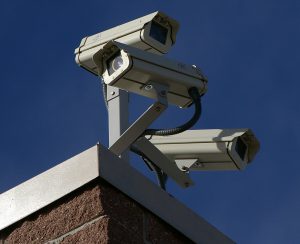
To decide if a safety camera has audio recording qualifications or if CCTV can record audio, you can check its specifications provided by the manufacturer. Look for features like a built-in microphone, audio input/output ports, or audio recording support mentioned in the product description. Consulting with a professional security system provider can help you identify cameras that meet your audio surveillance needs if needed. Various ways exist to determine if a CCTV camera has audio recording capabilities. Here are some of the indicators and features to consider:
Manufacturer’s Specifications
First, review the camera’s specifications provided by the manufacturer. Check for specific mentions of CCTV audio recording capabilities or features like built-in microphones, audio input/output ports, or audio recording support. You can find this information in the product description or user manual.
Camera Model
Different CCTV camera models offer additional features and functionalities. Some camera models are explicitly designed to capture audio, while others focus only on video recording. Research the camera model you are using or considering and verify if it supports audio recording.
External Audio Input
Some CCTV cameras do not have built-in microphones but can connect to external audio devices. These cameras often have audio input ports to connect external microphones or audio sources for sound capture. Check the physical ports of the camera or guide to the user manual to decide if it supports external audio input.
Audio Symbol or Icon
The camera itself or its user interface may have an icon or symbol indicating audio functionality. Look for symbols representing sound waves, microphones, or speaker symbols. These visible alerts usually indicate the existence of CCTV audio recording qualifications.
Consult with Professionals
If you are uncertain or require more specific information, it is advisable to consult with professionals in the security system industry or contact the camera manufacturer’s support team. They can provide accurate and detailed information about the CCTV audio recording capabilities in question. Remember to comply with applicable laws, including obtaining consent and displaying proper signage to inform individuals about audio recording activities. By reviewing the camera specifications, model, and external audio input options and consulting with professionals, you can determine whether a CCTV camera has audio recording capabilities.
How far can CCTV record audio?
The audio quality and range of CCTV audio recording may differ depending on the camera standard and specifications. The specific distance from the camera typically limits the audio range of cameras with built-in microphones or external audio devices. It is crucial to consider factors such as ambient noise, camera placement, and the intended purpose of audio recording when evaluating the audio range and quality of CCTV cameras.
Which CCTV cameras can record voice?
In general, there are two types of CCTV cameras in the world security cameras, IP cameras and analogue cameras. The audio recording feature differs in these two types of CCTV. However, no matter which type of security camera is used _analogue and IP cameras_ surveillance cameras can record both sound and video.
Analogue CCTV
In analogue security cameras, the audio input is directly fed into the DVR. It means the analogue signal transmission is done between the DVR and the microphone ( audio input), and then the audio signal is digitalized at the recorder level. The number of inputs allowed to the DVR is the solution for the limitation of how many microphones can be installed.
IP CCTV
In IP cameras, the audio input is fed into the IP camera. The analogue signal transmission is done between the IP camera and the microphone. Then, the audio signal is digitalized at the IP camera level. The number of video channels of the NVR is the solution for the limitation of how many microphones can be installed and whether the IP camera has audio input. It is also the same for those types of IP cameras that come with embedded microphones.
How can I Turn off the CCTV audio recording?
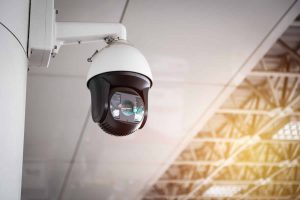
If you have CCTV cameras that can record audio but prefer not to use this feature, you must know how to turn it off. Most CCTV systems offer configuration settings that allow you to turn audio recording on or off for individual cameras or the entire system. To turn off CCTV audio recording, please guide to the camera’s user manual or get the factory or method provider for advice. When using CCTV systems with audio recording capabilities, it is essential to comprehend the lawful concerns and laws covering audio management in the UK. Constantly assure adherence to appropriate rules.
Conclusion
By understanding the rules, knowing the capabilities of your security cameras, and making informed decisions, you can utilize CCTV audio recording capabilities effectively and responsibly for your business or security needs. The capabilities of CCTV systems evolve alongside technology. The ability to capture sound adds an extra dimension to the surveillance landscape, providing valuable information and enhancing the overall security of various environments.
However, it is crucial to navigate the legal and ethical aspects of CCTV audio recording with utmost care, ensuring compliance with UK regulations and respecting individuals’ privacy rights. Whether you are a business owner seeking to bolster security measures or a homeowner looking to protect your property, understanding the capabilities and limitations of CCTV systems regarding audio surveillance is vital.
By staying informed about the rules surrounding audio recording, selecting appropriate cameras, and managing audio settings responsibly, you can harness the power of CCTV to safeguard your assets while upholding privacy and legal standards. Remember to prioritize the ethical and legal aspects of audio recording when utilizing CCTV systems. With the proper technique, you can balance safety and aloneness, creating a safe environment that respects the requests and well-being of all people applied and obtaining a response to the question: Can CCTV record audio?

